Unveiling High-Potency Magic Mushroom Chocolates: Composition, Effects, and Safety
Magic mushroom chocolates, containing psilocybin, offer a modern way to explore psychedelic experien…….
Welcome to an exploration of a fascinating intersection between culinary delights and neuroplasticity—the concept of Magic Mushroom Chocolates. This innovative fusion combines the therapeutic properties of psilocybin mushrooms with the allure of premium chocolates, creating a unique experience that has captivated scientists, healthcare professionals, and food enthusiasts alike. In this comprehensive article, we will delve into the world of magic mushroom chocolates, its impact on brain plasticity, and its growing global presence. By the end, readers will gain insights into this emerging trend’s potential to revolutionize wellness practices and cognitive health.
Magic Mushroom Chocolates refer to gourmet chocolates infused with psilocybin mushrooms, a compound known for its psychoactive properties. These mushrooms, often referred to as “magic mushrooms,” contain psilocybin and psilocin, which, when consumed, can induce altered states of consciousness and cognitive enhancements. When incorporated into chocolate, these compounds are delivered in a controlled manner, offering a unique culinary and therapeutic experience.
The process involves carefully selecting and preparing the mushrooms, followed by precise extraction methods to isolate psilocybin. This extracted compound is then incorporated into various chocolate formulations, ensuring a delightful taste and consistent dosage. The result is a sophisticated confectionery item that promises not only indulgence but also potential cognitive benefits.
The concept of using mushrooms for their psychoactive properties dates back centuries in various cultures worldwide. Traditional healing practices in Mesoamerica, for instance, utilized certain types of psilocybin mushrooms for spiritual and medicinal purposes. However, modern interest in magic mushroom chocolates emerged more recently as a fusion of two distinct fields: culinary arts and psychedelic research.
In the early 2000s, chefs and food innovators began experimenting with incorporating mushrooms into gourmet recipes, seeking to elevate taste experiences. Simultaneously, scientific research into psilocybin’s therapeutic potential accelerated, uncovering its positive effects on mental health and brain function. This convergence of interests laid the foundation for the development of magic mushroom chocolates as a unique culinary therapy.
Magic Mushroom Chocolates have swiftly gained international recognition, with varying degrees of acceptance and adoption across regions. The United States, Canada, and several European countries have led the way in both research and commercial development. These regions have seen a surge in start-ups and established brands introducing psilocybin chocolates to the market, catering to health-conscious consumers seeking alternative wellness solutions.
In contrast, countries with stricter regulations regarding psychoactive substances have had more limited exposure to magic mushroom chocolates. However, even in these regions, interest is growing as research highlights the therapeutic potential of psilocybin. As global attitudes shift and regulations evolve, it is expected that the market for magic mushroom chocolates will expand further.
The market for magic mushroom chocolates is characterized by a blend of premium pricing and a desire for unique experiences. Consumers are often willing to pay a premium for these specialized products, attracted by their potential health benefits and exclusivity. This trend has prompted manufacturers to innovate in terms of flavor profiles, ingredient sources, and packaging designs.
Online sales have played a significant role in the global expansion of this market, allowing brands to reach a worldwide audience. Social media platforms also contribute to consumer engagement, with influencers promoting the cognitive and therapeutic advantages of magic mushroom chocolates. This digital presence has helped dispel myths and increase awareness, fostering a community of enthusiasts eager to explore alternative wellness practices.
The economic landscape surrounding Magic Mushroom Chocolates is dynamic and multifaceted. The primary market comprises specialty food retailers, online e-commerce platforms, and health-focused stores. Premium pricing strategies are common, reflecting the perceived value of the product’s therapeutic qualities and exclusive nature.
Investment in this sector has been steadily increasing, driven by venture capitalists recognizing the potential for significant returns. Start-ups focusing on psilocybin chocolate production and delivery systems have attracted substantial funding, reflecting investor confidence in the market’s growth. As regulations become more favorable, expected revenue streams include direct sales to consumers, wholesale partnerships with retailers, and licensing opportunities for unique formulations.
The economic impact of magic mushroom chocolates extends beyond sales figures. The development of this industry has created job opportunities in various sectors, from farming and cultivation to manufacturing and marketing. In regions where psilocybin mushrooms are cultivated locally, it provides an additional revenue stream for farmers, contributing to rural economies.
Moreover, the emergence of magic mushroom chocolate tourism is a growing trend. Locations with legalized recreational or therapeutic use of psilocybin attract visitors seeking experiences in dedicated facilities or nature retreats. This form of ecotourism not only generates local revenue but also fosters cultural exchange and appreciation for psychedelic practices.
Technological innovations have played a crucial role in the development of magic mushroom chocolates, particularly in extraction methods and delivery systems. Modern techniques allow for precise isolation of psilocybin, ensuring consistent dosages in each chocolate bar or capsule. This precision is essential for both safety and efficacy, as it enables manufacturers to cater to specific consumer preferences and therapeutic goals.
Microdosing technology, for instance, involves creating chocolates with ultra-low doses of psilocybin, allowing consumers to experience subtle cognitive enhancements without intense psychedelic effects. Such innovations cater to those seeking mental clarity and focus rather than altered states of consciousness.
The digital space has also contributed to the magic mushroom chocolate trend through the development of accompanying mobile apps and online platforms. These tools provide educational content, guided meditation sessions, and personalized dose tracking for users. By combining the physical experience of consuming chocolate with digital therapeutics, manufacturers offer a holistic approach to cognitive wellness.
Psilocybin, the active compound in magic mushroom chocolates, has been extensively studied for its impact on brain function and connectivity. Research suggests that psilocybin can induce profound changes in neural activity, leading to enhanced cognitive flexibility, creativity, and emotional well-being. These effects are believed to result from its ability to increase the firing of neurons and promote neuroplasticity.
Neuroplasticity refers to the brain’s capacity to reorganize itself by forming new neural connections. Psilocybin is thought to facilitate this process, allowing for increased accessibility to different parts of the brain and potentially unlocking new avenues for cognitive processing. This concept underpins the potential of magic mushroom chocolates as a tool for enhancing learning, creativity, and mental resilience.
The therapeutic potential of psilocybin has been explored in various clinical settings, including treating depression, anxiety, and post-traumatic stress disorder (PTSD). Research has shown that controlled doses of psilocybin can lead to significant improvements in these conditions, with effects lasting for months. Magic mushroom chocolates, when used as part of a therapeutic regime, could offer a more accessible and palatable approach to delivering psilocybin for similar benefits.
Furthermore, the regular consumption of magic mushroom chocolates may contribute to overall brain health and cognitive reserve. Neuroprotective properties attributed to psilocybin suggest that its consistent use could support brain function as people age, potentially reducing the risk of cognitive decline. This idea aligns with the growing focus on preventative wellness practices.
The legal status of magic mushroom chocolates varies significantly worldwide. In some countries, psilocybin mushrooms are fully legalized for both medicinal and recreational use, while others have strict prohibitions in place. These varying regulations present challenges for manufacturers and consumers alike.
In regions with legal restrictions, obtaining the necessary permits and licenses can be a complex process, often involving extensive research and clinical trials to demonstrate safety and efficacy. Even in legal markets, compliance with food safety standards and labeling requirements is crucial to ensure consumer protection.
The ethical dimensions of magic mushroom chocolates are multifaceted. While some advocate for their therapeutic potential, others raise concerns about misuse and the accessibility of such products. Ensuring informed consent, especially when incorporating psilocybin into consumable items, is essential to protect vulnerable individuals.
Additionally, the environmental impact of cultivating psilocybin mushrooms requires careful consideration. Sustainable farming practices are necessary to minimize ecological disruptions associated with mushroom cultivation, particularly in wild habitats where certain species naturally occur.
Consumers of magic mushroom chocolates often share personal testimonials highlighting cognitive improvements and enhanced overall well-being. Common themes include increased focus, improved mood, and heightened creativity. Many users report that the experience is both enjoyable and profoundly insightful, leading to a deeper understanding of themselves and their place in the world.
For example, Sarah, a 35-year-old marketing professional, shared her story: “I’ve always been interested in psychedelic therapy, so when I tried magic mushroom chocolates, I was curious about the potential effects. The experience was incredibly peaceful, and afterward, I felt an enhanced sense of clarity and perspective. My work projects felt more manageable, and my overall stress levels seemed to decrease.”
The rise in popularity of magic mushroom chocolates has led to the formation of online communities where users share experiences, insights, and support. These communities often emphasize responsible use, highlighting the importance of set (mental state) and setting (environment) when consuming psilocybin. By fostering open dialogue, these groups contribute to a culture of informed and safe exploration.
The scientific community continues to explore the therapeutic potential of psilocybin through clinical trials and research studies. These efforts aim to uncover optimal dosage regimes, identify specific populations who may benefit most, and investigate long-term effects. As knowledge expands, so too will our understanding of how magic mushroom chocolates can be integrated into wellness routines.
The future may see the development of personalized psilocybin therapy tools, including chocolate formulations tailored to individual needs. Such approaches could leverage advanced technologies for precise dosing and delivery, ensuring optimal cognitive outcomes while minimizing potential risks.
Integrating magic mushroom chocolates into broader wellness practices is an emerging trend. This includes combining their use with meditation, yoga, or other complementary therapies to enhance overall mental and physical well-being. As research continues to support the benefits of psilocybin, such integrative approaches may gain more mainstream acceptance.
Magic mushroom chocolates represent a fascinating intersection of food science, neuroscience, and wellness. While challenges remain regarding regulation and public perception, the potential cognitive benefits of psilocybin continue to attract scientific interest and consumer curiosity. As research progresses and our understanding deepens, we may see magic mushroom chocolates become an increasingly accepted and valuable addition to the realm of cognitive enhancement and therapeutic interventions.
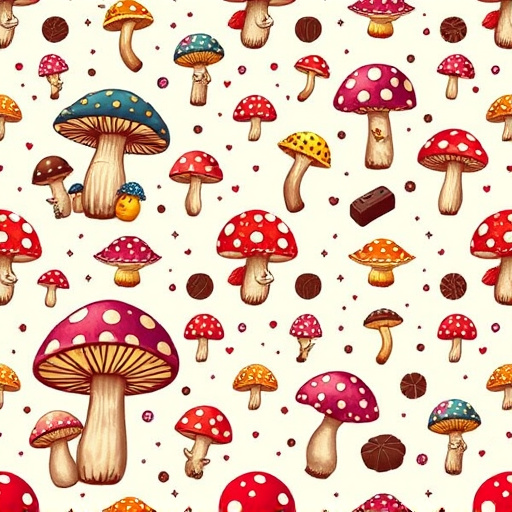
Magic mushroom chocolates, containing psilocybin, offer a modern way to explore psychedelic experien…….
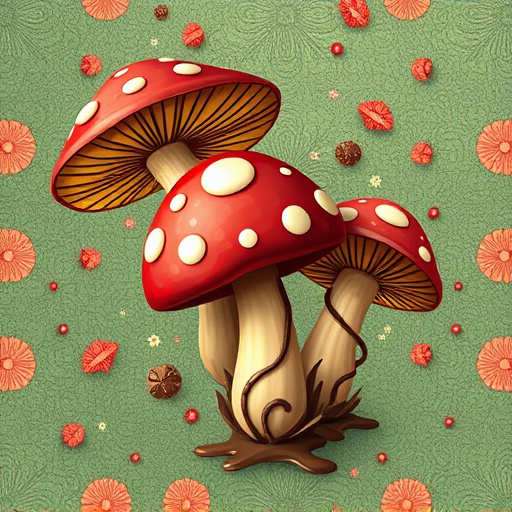
Magic mushroom chocolates, boasting appealing flavors and psychological compounds like psilocybin, h…….
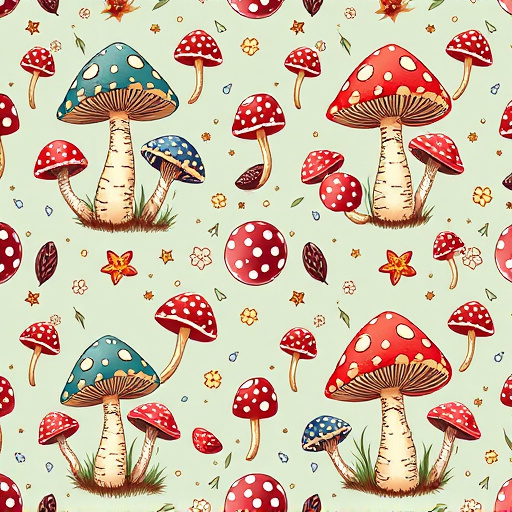
Magic Mushroom Chocolates represent a novel blend of gastronomy and psychedelics, infusing psilocybi…….
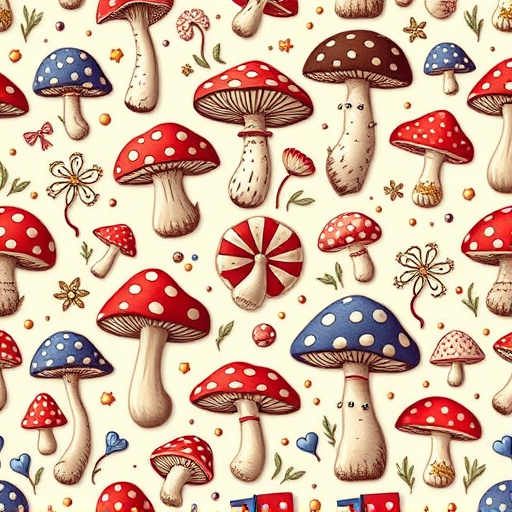
Magic mushroom chocolates, enriched with psilocybin, offer a gourmet journey with potential therapeu…….
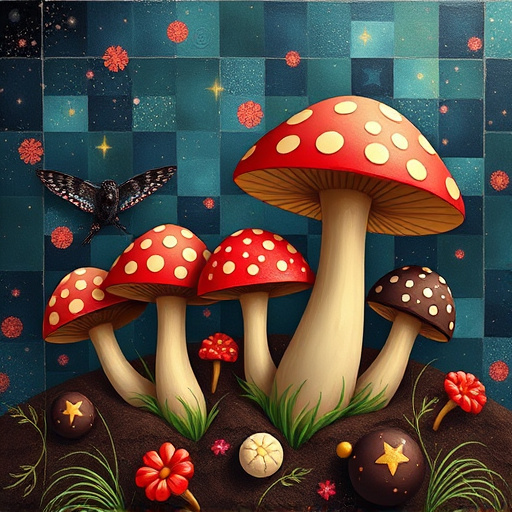
The rising trend of Magic Mushroom Chocolates goes beyond a tasty treat, offering a scientific explo…….
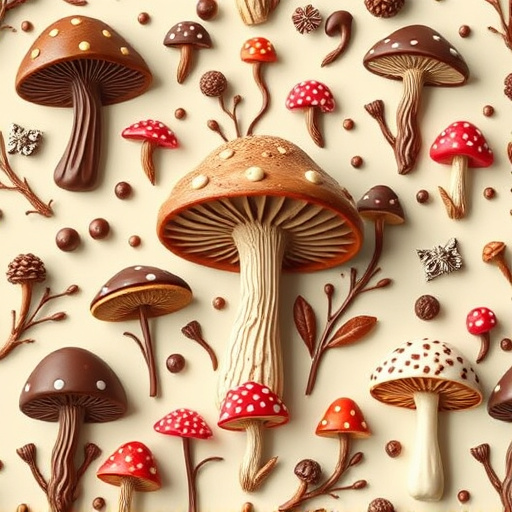
Magic Mushroom Chocolates offers a revolutionary subscription service that combines gourmet treats w…….
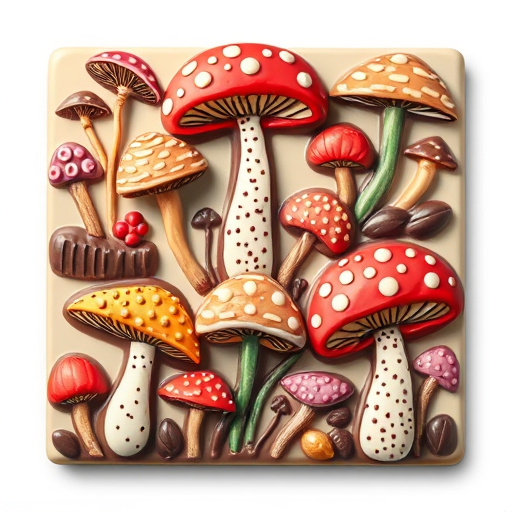
Magic Mushroom Chocolates enrich food with psilocybin, leveraging brain plasticity to offer a novel,…….
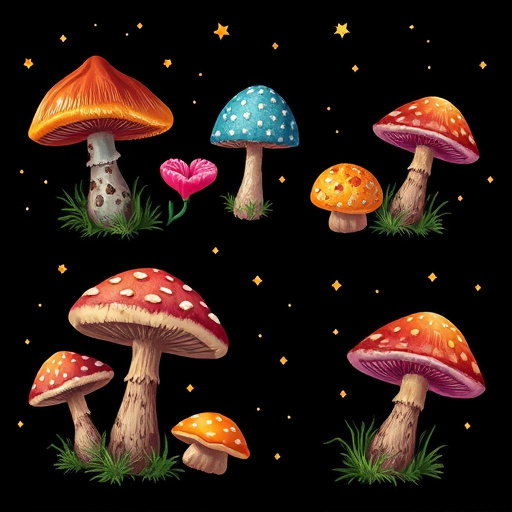
Magic mushroom chocolates, derived from compounds like psilocybin, offer a novel approach to enhanci…….